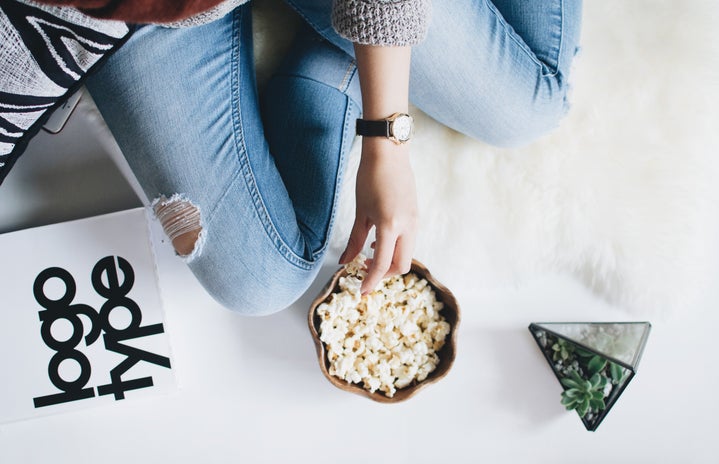Electives… we love them and we loathe them. They provide us with the freedom to study what interests us (a luxury not often found in high school); but,with the abundant options out there, it can sometimes feel overwhelming to narrow down your courses for the year. To put your mind at ease, we’ve asked our team of writers to recommend their favourite UVic courses to make the selection process easier.
- GNDR 201: Gender, Food and Power
-
GNDR 201 is the whole reason I love my minor. I was instructed by Annalee Lepp who showed up to the first day of class with a blue streak in her hair—now that’s what I call style! The course covered food sovereignty, food justice, and how various food systems intersect with our identity and sense of power. We frequently discussed our readings in class, which fostered some of the most profound discussions I’ve ever had in an academic setting. The films we watched were carefully selected by Dr. Lepp and nicely complemented the lectures, readings, and assignments. Overall, this course dipped into so many other areas of study at UVic like Indigenous Studies, Psychology, Sociology and even a bit of Biology. If you’ve ever considered a Gender Studies course as an elective, GNDR 201 is a great place to start.
-Carly
- GRS 204: The Ancient World on Film
-
Need a class that perfectly balances fun facts about Ancient Greece and Rome with putting up your feet and watching movies? This may be the course for you. You’re given access to source material-like Ovid’s Metamorphoses-there’s a short online quiz on that material, a brief lecture about Greek or Roman culture, and then it’s movie time! When I took this course in the spring of 2019, we watched everything from Disney’s Hercules (1997) to Spike Lee’s Chi-Raq (2015). Other than the weekly readings, there was a final exam and a final project of either analyzing an adaptation in an essay or filming your own digital short adaptation. It fit in well with my studies in writing because it got me thinking about why things are changed or kept in adaptations, and why themes from these old stories still resonate with us today. There are no prerequisites and it runs in the spring, and I strongly recommend taking it if you’re curious about Greek & Roman Studies Class.
-Emma
- SOCI 100: Introduction to Sociology
-
I took both SOCI 100A and B in my first year. While I found the topics covered in 100A to be more interesting personally, I highly recommend both of these courses. I registered for the course having little idea what sociology even was, but by the time I left my first class, Bruce Ravelli had me hooked. He spoke about issues that are important to me, yet never would have been broached in my high school or even in my family. I had attended a catholic school in a small town my whole life and was looking forward to experiencing more open minded thinking in university. Bruce’s discussion of race, sexuality and gender was a perfect way to do that. His teaching was absolutely captivating and truly opened my eyes to see the world differently.
-Ashlee
- HUMA 120A: Post-Medieval Humanities and the Making of the Modern Mind
-
Humanities was originally just my ‘in’ to the Writing program, which was already full by the time I applied. But having been accepted I decided that I may as well take a few of the courses. And I LOVED it! Learning about the dawn of Critical Thinking forced me to look at things and examine them in a whole new light. Merely writing the collaborative essay ‘What is Truth?’ (looking at it from different angles: What does it look like to the young? Middle aged? Elderly? Different race? Different culture? How has technology changed it?) was worth the price of the course to me, as it made me realize that what I saw as my ‘Logical Truths’ were entirely subjective and arbitrary, and I had to work through that to come to new conclusions.
-Robyn
What courses are you most excited to try? Share your thoughts in the comments below!


